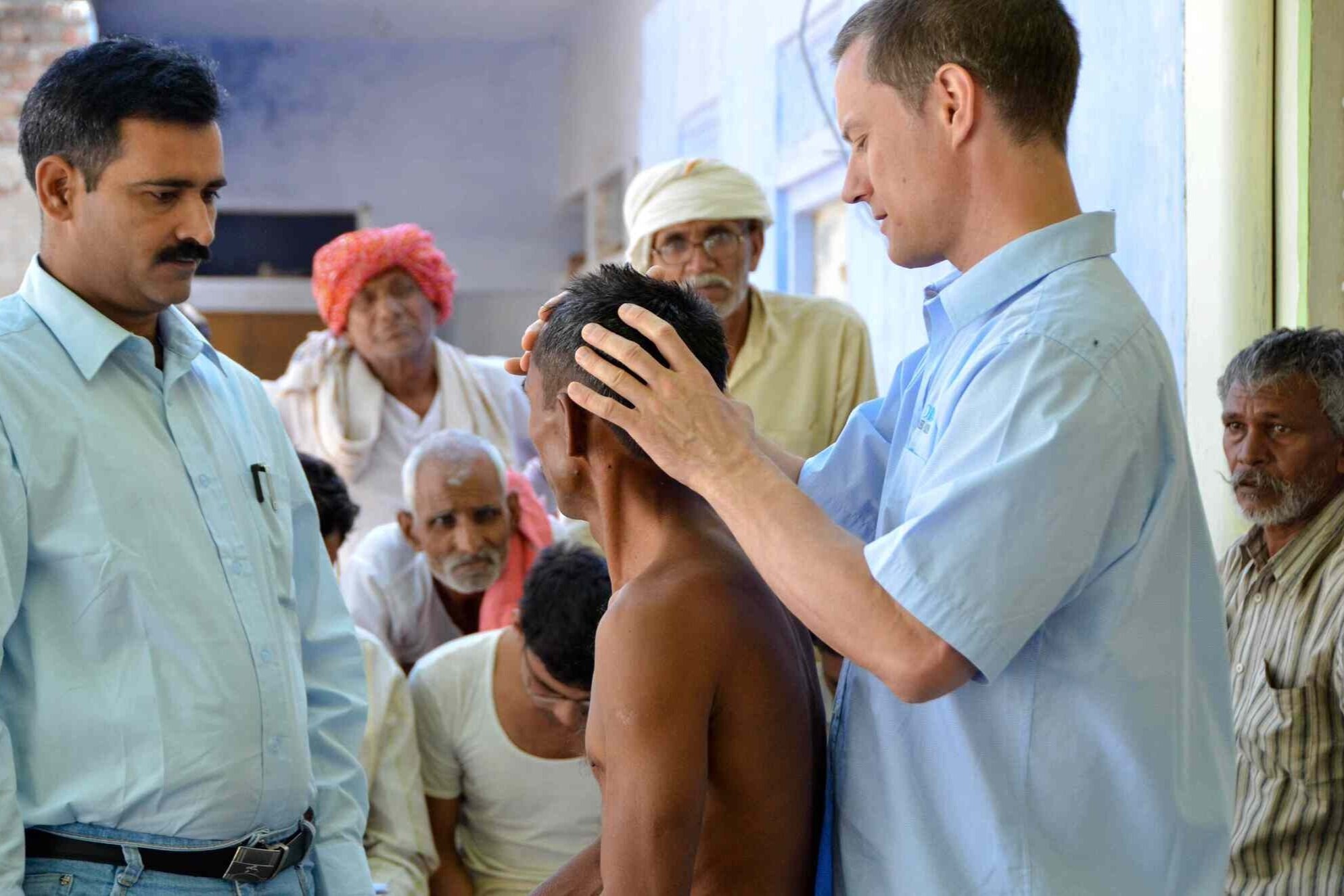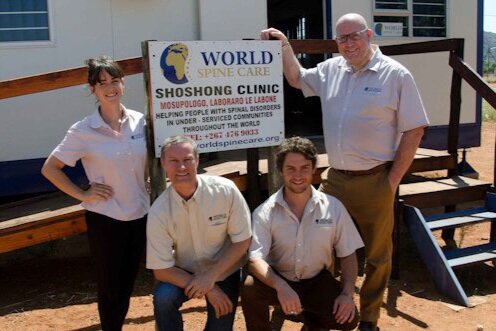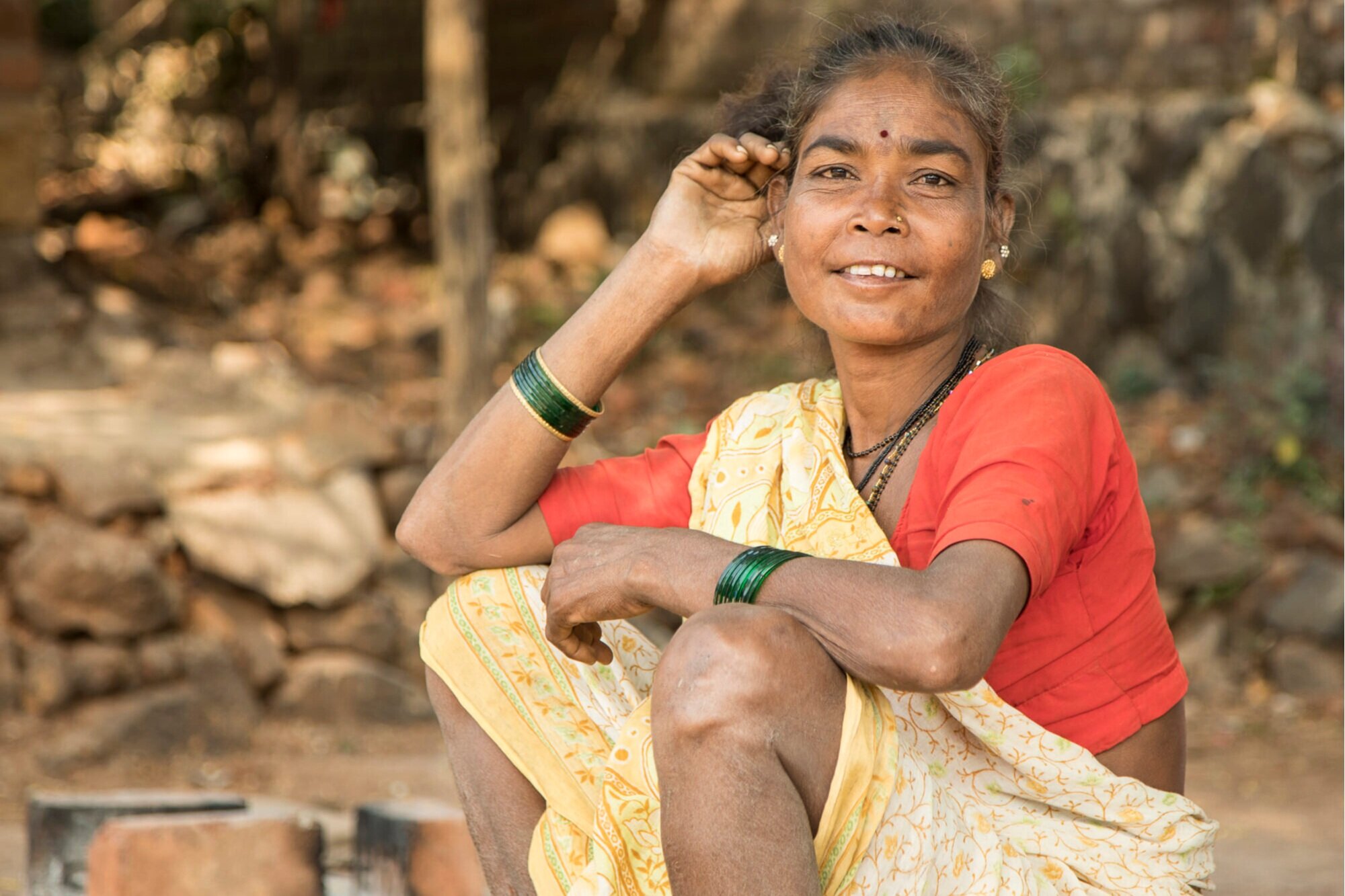About us
Multidisciplinary care for spine pain
World Spine Care (WSC) is a multinational not-for-profit, charitable organization.
It is a collection of five healthcare-focused charitable entities registered in Botswana, Canada, South Africa, the United States, and the United Kingdom.
World Spine Care was founded in 2008 by Scott Haldeman, MD, PhD, DC, a leading figure in the assessment and treatment of spinal conditions. It was launched to fill the profound gap in the evidence-based treatment of musculoskeletal and especially spinal conditions found in underserved areas around the world.
Our mission
To improve lives in underserved communities through
sustainable, integrated, evidence-based, spine care.Our vision
A world in which everyone has access to the
highest quality spine care possible.
Our values
Research
Add to the body of knowledge of spine care.
Global
Bring access to spine care, without barriers, to under served communities around the world.
Sensitive
Sensitive to the local customs and culture of the communities in which we operate.
Entrenching sustainable clinics in the communities in which we work is a fundamental principle of World Spine Care. While developing a model of care for spinal conditions is a primary focus of World Spine Care, it is equally important to WSC that our clinics are embedded in the local health care system, creating not only a sustainable model of care, but also one that can be expanded throughout the country, with full cooperation of the host government.
The ongoing sustainability of World Spine Care is realized through:
Health worker training: for the on-site training of local front-line healthcare practitioners in the screening, assessment, and emergency management of non-surgical spinal conditions.
Medical doctor training: in the diagnosis and treatment of spinal disorders
Train-the-Trainer program: aimed at enabling practitioners to pass on their skills to others to expand present levels of care and, over time, to begin to address the chronic issue of health worker shortages.
Community education: on the risk factors for spinal conditions and early stage treatment to avoid the risk of chronicity, which will reduce the impact of spinal conditions on the communities.
Academic scholarships: for qualified residents to attain professional credentials in primary spine care through supported educational programs. These opportunities are conditional on a commitment to return to supervise the WSC clinics.
Fellowships: in advanced spine surgery and appropriate medical specialties: WSC will facilitate these advanced training programs at major spine centers.
Long-term partnership: with local Ministries of Health and applicable regional health system managers to establish the structures and processes required to plan, implement, and deliver spinal and musculoskeletal care on a permanent basis. The host Ministries of Health will eventually take over ownership, management, expansion, and sustainability of each project with continued WSC support.
Our evidence-based approach includes:
Evidence-based examination, treatment, and education
Universal documentation – the WSC documentation has been developed based on evidence-based care and has been created to address several unique issues.
Each patient may be seen by multiple practitioners. The documentation must facilitate seamless continuity of care for the patient. Each patient, once trained in the documentation will be able to quickly learn all the important information about the patient, how they have been treated and what was the outcome to treatment.
Each clinic must use the same documentation. This will facilitate comparison of outcomes, patient demographics, cultural differences and statistics.
Each clinic is a research site. The data collected from patients is used on ongoing clinical research including treatment outcomes and other epidemiological studies. Data collection and data storage is consistent across all the WSC clinics.
World Spine Care is building local capacity at each of our clinics in the following ways:
Patient education – patients are educated on the prevention and management of spinal and musculoskeletal disorders, including physical and psychosocial risk factors.
Community education – several community programs have been developed and implemented by World Spine Care including the Straighten Up program, scoliosis screening, and yoga teacher training program. Local representatives are trained to deliver these programs in the local language and cultural context.
Educating local health care workers – Education programs are implemented to help increase the knowledge and skills in the evaluation and management of spinal disorders.
Presentations – on spinal and health-related issues
Workshops – one-day workshops on various spine-related topics.
Conferences – the first spine care conference was held in Mahalapye, Botswana in 2013 and brought experts from the fields of surgery, conservative care, radiology, epidemiology, and evidence-based care.
Student scholarships – WSC offers full scholarships through participating institutions for local students to train as spine care specialists and eventually take over the management of the spine care projects.








